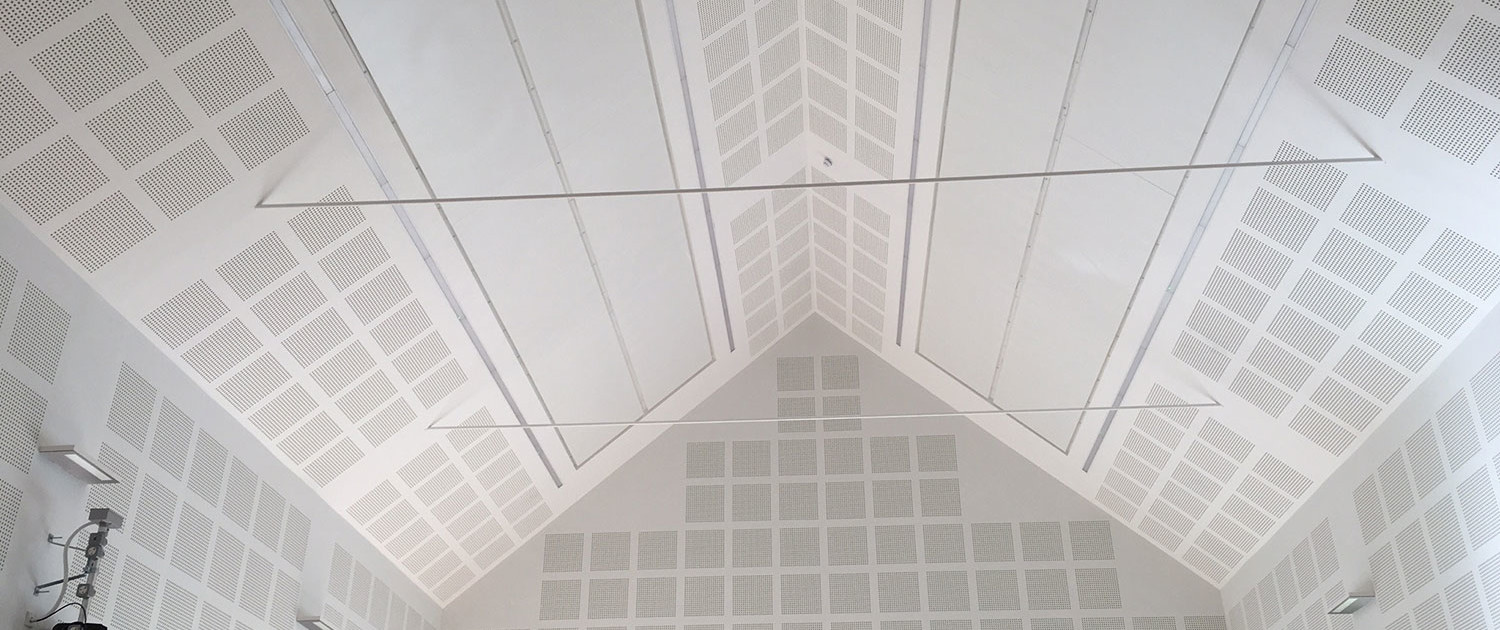FIRE STOPPING AND AIR SEALING
Safety First
Building regulations outline the need for large buildings to be divided into compartments, and specifies the level of fire performance the compartment walls and floors need to achieve in order to preserve both building structure and life through fire and smoke containment.
In most buildings, mechanical and electrical services by necessity breach compartment walls and floors allowing failure of integrity and insulation to occur where gaps around services have not been adequately fire stopped. The use of correctly installed proprietary certified fire stopping systems will contain a fire at its source and limit the risk of the destruction caused by the spread of fire and the release of toxic gasses.
Intumescent Coated Batts
Fire barriers are high density mineral fibre boards with a white endothermic, ablative coating. These are designed specifically to stop the spread of fire through service openings in fire rated walls and floors and can provide up to 240 minutes fire protection. In addition to providing a fire seal, these barriers can also provide acoustic performance of over 40Db depending on installation specifics.
Fire Compounds
Fire compound systems are single based gypsum material with thermal and acoustic properties providing a fire seal around service penetrations through walls and floors. Fire compound systems are particularly designed for use in areas where a loading of the penetration is applicable, such as service risers. Fire compounds are quick setting to provide a seal offering up to 240 minutes fire resistance.
Intumescent Mastic
Intumescent Mastic systems are water based acrylic intumescent or silicone based sealants. Adhering to most types of surface it can be used for all building & constructions joints and is used to provide fire protection to gaps & movement joints. It also provides fire protection around service penetrations when used in conjunction with the Intumescent batts which when cured form a non-hardening seal. This prevents the passage of smoke, toxic gases and fire for up to 240 minutes fire protection.
Air Sealing
Air tightness / air permeability is defined as the resistance of the building envelope to inward or outward air leakage. Air leakage is driven by pressure differentials between inside and outside a building caused by wind, stack effect and mechanical ventilation systems. Excessive air leakage can lead to increased energy consumption, increased drafts within the building and increased risks of condensation within the building fabric. Broadsword use a variety of insulation products which provide the required seal between the internal and external perimeters of the building.


